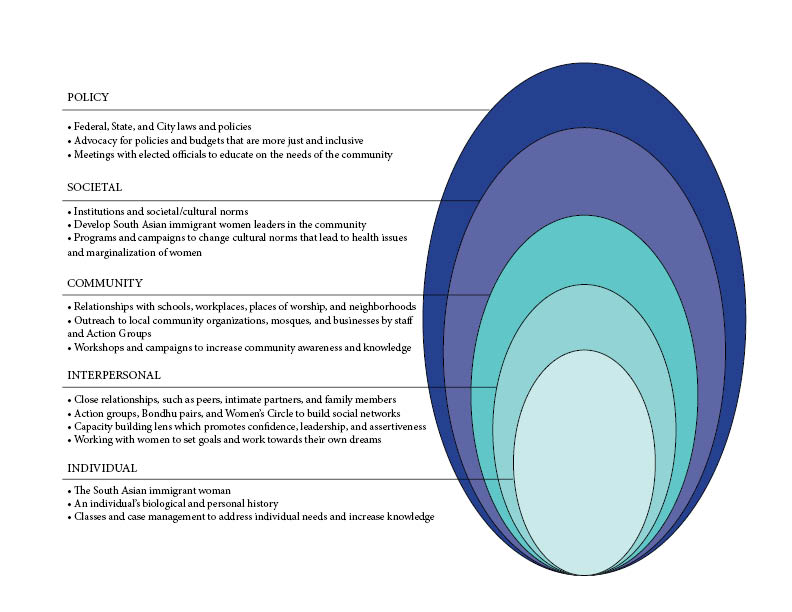Sapna’s programs are developed and evaluated based on Participatory Research, a state-of-the-art scientific method for conducting inclusive research. Women from our community play a key role at every level of our work – figuring out what programs to offer, helping us carry them through with peer health worker support, and giving us feedback on what needs to change.Participatory research leads to interventions that sustain and nourish a community. Sapna NYC uses Action Groups, community members who are trained in leadership and knowledge, to do outreach in the community.This allows information to spread to a broader network and also to reach those women and families most isolated from services. Action Groups build capacity within the community, creating a foundation of knowledge and instilling women with the confidence to become community leaders.
Participatory Research
Theory of Change
Sapna’s Theory of Change is built around participatory research – particularly in our holistic approach to program design and our emphasis on the connection between social justice and program design. We create our programs to work at multiple levels—individual, societal, and political. Our theory of change recognizes that the issues our women face are not isolated issues, rather they are impacted directly by the political, economic, and cultural systems in which they live.Effective interventions need to address problems at these multiple levels. In the social sciences, this theory is called the Social Ecological Model. The SEM shows that people are embedded in social networks, communities, and a larger societal context.


